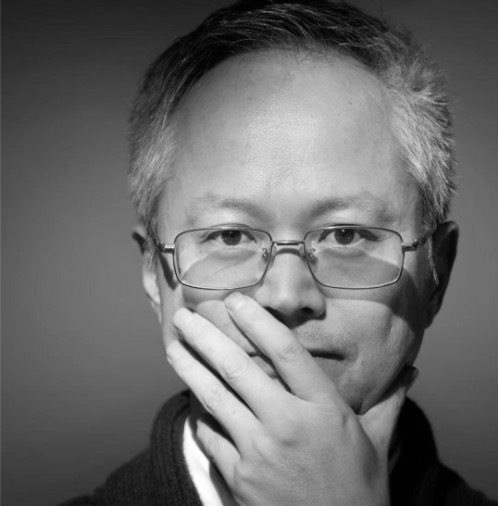
一个中年朋友说,每当有陌生人或四五年不联系的人联系他时,他的心里就打鼓,知道是浪费精力还是不得不应付。应付得多了,他就更明白,三十岁之前不认识的人也就不想认识了,一个人应该知道珍惜他周围的人脉资源。
一中年友言,每有生人或四五年未通音讯者来,心下辄忐忑,虚耗精神,而不得不应酬。应酬既多,愈明一理:三十之前未识者,不复欲识矣。人当知惜其周身人脉也。A middle-aged friend said, whenever a stranger or someone he hasn’t been in contact with for four or five years reaches out to him, he feels apprehensive, wondering whether it’s a waste of energy or something he has to deal with. Having dealt with such situations many times, he has come to realize that he no longer wishes to acquaint himself with people he didn’t know before the age of thirty. One should know how to cherish the connections around him.有朋友说,在现代,所有被观看的作品基本上都是餐巾纸的命运。大众则被训化做一个现代人。做一个在情感上按规范反应的正常人,做一个对历史或别的什么的一枚合格消费者,把人生交给正确,正确地完成合格的一生,这就是所谓的现代。
友人云,今世诸般可观者,率皆如餐巾纸,用毕即弃。众生则被教化为“现代人”:情若符契,方为常人;于史等事,则为良客。举生委于“正”,循“正”以毕此生,此之谓“现代”也。A friend said, in modern times, all works that are viewed are essentially destined to be like napkins, used and discarded. The masses, on the other hand, are conditioned to be “modern individuals.” To be a normal person who reacts emotionally in a prescribed manner, to be a qualified consumer of history or other things, to surrender one’s life to “correctness” and complete a qualified life correctly, this is what is known as the modern.新加坡以英语作为第一语言,华语为第二语言中的一种,新加坡大部分华人都说英语,他们的文化本质上是英文文化,可以说,新加坡变相地实现了“脱亚入欧”,成功西化了。有人说,每个学英语的人,都是中国的祝福;每个用好汉语的人,都是中国的积累和创造。
新加坡以英语为第一语言,华语为众第二语言之一。新国华人多操英语,其文化实为英文文化。故谓新国变相“脱亚入欧”,西化有成。或曰:凡习英语者,皆为华夏之幸;凡善用华文者,皆为华夏之积与创。Singapore uses English as its first language and Mandarin Chinese as one of its second languages. Most Chinese Singaporeans speak English, and their culture is essentially rooted in English. It can be said that Singapore has, in a sense, achieved “leaving Asia for Europe” and successfully Westernized. Some say that everyone who learns English is a blessing to China; and everyone who uses Chinese well is an accumulation and creation for China.巴菲特谢幕引起世人关注,他对年轻人建议:别急着赚快钱,先去找那些你打心底佩服的人,和他们在一起;别只盯着职位和薪水,去找那个你愿意为之努力一生的方向;别被环境推着走,问问自己:我想成为什么样的人?我在和谁一起走这条路?
巴菲特谢幕,举世瞩目。其为少者诫曰:毋亟亟于速富,先寻汝心所敬仰者,与之偕行;毋唯职权俸禄是图,寻汝愿为其毕生奋勉之关隘;毋为境遇所役,自问曰:吾欲为何种人?吾与谁共赴此途?Buffett’s departure has captivated global attention. He advises the youth: “Do not rush for quick riches. First, find those you deeply admire and accompany them; do not focus solely on titles and pay, but rather on the path you are willing to dedicate your life to; do not be led by your environment. Ask yourselves: Who do I aspire to be? Who are my companions on this journey?”一个诗人说,200多年前,有个国家发表宣言痛斥他国对其进行贸易制裁,强制征税,无中生有罗织罪名,长臂管辖。而今天,这个国家活成了自己宣言中最讨厌的那个样子。
一诗人云,二百年前,有一国昭告天下,痛斥他国禁贸加税,妄言罪状,越界而治。然则今朝,此国竟成其昭中所恶之貌。A poet remarked that over two centuries ago, a nation issued a declaration condemning another for imposing trade sanctions, levying taxes by force, fabricating charges out of thin air, and overreaching its jurisdiction. Yet today, that nation has transformed into the very image it most detested in its own declaration.有年轻朋友说,神仙斗法,陈塘关百姓给屠成了炮灰,作为平民无法代入神仙,他不理解大家为什么那么兴奋。有人问他,“他们一年当364天的牛马,有一天看戏代入王子公主的角色,难道就错了吗”?年轻朋友反思,自己太缺乏人家那种灵活心态。
一少友曰,神仙斗法,陈塘关百姓尽为炮灰。吾辈平民,难入神仙之境,不解众人何故如斯雀跃。或问之,“彼等经年累月,364日为牛为马,唯有一日观剧,自比为王侯公主,岂有错乎”?少友反思,己身乏彼等灵动之心。A young friend said that when the immortals were having a battle, the common people in Chentang Pass were massacred and became cannon fodder. As a commoner, he couldn't identify with the immortals, and he didn't understand why everyone was so excited. Someone asked him, "They work like oxen and horses for 364 days a year, and for one day when they watch a play and identify with the roles of princes and princesses, is that really wrong?" The young friend reflected on himself and realized that he lacked the kind of flexible mindset that others have.1867年10月,在莫斯科音乐学院院长鲁宾斯坦为托尔斯泰举办的专场音乐会上,当弦乐四重奏弹出柴可夫斯基的“D大调如歌的行板”时,托尔斯泰突然啜泣了,柴可夫斯基本人深受震动。托尔斯泰此时正写完《安娜·卡列尼娜》后半部,从“伸冤在我,我必报应”转向他那著名的内心危机。我花了很长时间理解托尔斯泰的这个场景,我后来明白这是一个人精进到谦卑懊悔的必然现象。
同治六年十月,莫斯科音乐学院掌院鲁宾斯坦为托翁设弦乐之会。四重奏奏响柴可夫斯基“D大调如歌行板”,托翁忽潸然泪下,柴氏亦深为所动。时托翁方撰《安娜·卡列尼娜》后篇,自“伸冤在我,我必报应”转至其著名内心之忧。余久思托翁此景,后乃悟,此乃精进至谦卑悔悟之必然也。In October 1867, at a private concert held for Tolstoy by the director of the Moscow Conservatory, Rubinstein, when the string quartet played Tchaikovsky’s “Andante Cantabile” in D major, Tolstoy suddenly wept, deeply shocking Tchaikovsky himself. At that time, Tolstoy had just finished the second half of Anna Karenina, transitioning from “Vengeance is mine; I will repay” to his famous inner crisis. It took me a long time to understand this scene with Tolstoy, but I later realized that this is an inevitable phenomenon of a person progressing to humility and remorse.
本文为正观号作者或机构在正观新闻上传并发布,仅代表该作者或机构观点,不代表正观新闻的观点和立场,正观新闻仅提供信息发布平台。






